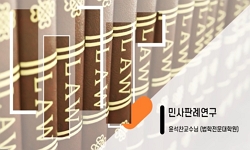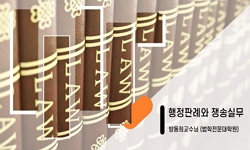법학전문대학원에서의 헌법교육은 기존의 법과대학에서의 교육과 비교할 때 그것이 보다 실천적이어야 한다는 점에서 다르다. 실천적인 헌법교육을 위해서는 구체적 사례와 판례중심의 교...
http://chineseinput.net/에서 pinyin(병음)방식으로 중국어를 변환할 수 있습니다.
변환된 중국어를 복사하여 사용하시면 됩니다.
- 中文 을 입력하시려면 zhongwen을 입력하시고 space를누르시면됩니다.
- 北京 을 입력하시려면 beijing을 입력하시고 space를 누르시면 됩니다.

헌법 판례와 법학전문대학원의 헌법교육 = The Merits and Demerits of the Constitutional Decisions of the Courts as a Material for the Education of Constitution in the Law School
한글로보기https://www.riss.kr/link?id=A82504369
- 저자
- 발행기관
- 학술지명
- 권호사항
-
발행연도
2010
-
작성언어
-
- 주제어
-
KDC
362.05
-
등재정보
KCI등재
-
자료형태
학술저널
-
수록면
175-198(24쪽)
-
KCI 피인용횟수
7
- 제공처
-
0
상세조회 -
0
다운로드
부가정보
국문 초록 (Abstract)
법학전문대학원에서의 헌법교육은 기존의 법과대학에서의 교육과 비교할 때 그것이 보다 실천적이어야 한다는 점에서 다르다. 실천적인 헌법교육을 위해서는 구체적 사례와 판례중심의 교육이 유용하다고 생각된다. 하지만 판례는 구체적 사례를 중심으로 헌법적 논의가 이뤄진다는 점에서 일정한 한계를 가지고 있기 마련이며, 또한 재판관이나 판사의 개인적 인식능력의 한계 또는 이념적 경향에 의해 좌우될 가능성이 있다. 또한 받아들여지기 어려운 편견에 의해 지배되는 경우도 배제하기 어려우며 논리적 치밀성이 결여된 예도 어렵지 않게 발견할 수 있다. ‘이렇게 봄이 상당하다’는 표현처럼 합리적 논리전개가 없이 단지 판사 또는 재판관의 판단내용만을 제시하고 이와 다른 주장을 포괄적으로 배제하는 식의 서술은 설득력을 갖기 힘들다. 따라서 헌법재판소나 법원의 판례를 법학전문대학원의 헌법교육에서 활용하면서 판례 자체에 매몰되거나 그 결론을 정당화시키는 것이 아니라 비판적으로 접근하여야 한다. 소수의견도 중시하여야 하며 다양한 사례의 변형을 통한 실천적 훈련을 중시하여야 한다.
다국어 초록 (Multilingual Abstract)
The decisions of the Constitutional Court or the Supreme Court would be very useful as a material for the education of constitution in the law schools, especially after the commencement of the law school system for the legal education in Korea, becaus...
The decisions of the Constitutional Court or the Supreme Court would be very useful as a material for the education of constitution in the law schools, especially after the commencement of the law school system for the legal education in Korea, because they are the real cases including several constitutional issues and the theories and practices. Most of the casebooks used as texts in the law school in the United States are filled with cases and materials. Though we recognize the importance of the decisions of the courts for the legal education, we should be careful because they have some demerits simultaneously. Firstly, the decision is not the law, but an authoritative interpretation for the concerned case. Then we should not take the decision for granted as a law, but take it as an important example for the interpretation of the concerned articles. Secondly, some decisions have some defects of logical leap or inconstancy. We should criticize the problems of the legal reasoning in the decisions. Because the most important thing for the legal education for the law school students is the legal reasoning or thinking like a lawyer. Thirdly, we should keep in mind that some justices or judges have some prejudices or biased views. We can see the examples in the Dred Scott case of the U. S. Supreme Court, or in the opinion of Justice Sung Kwon in the Conscientious Objector case of the Korean Constitutional Court in 2004. Fourthly, we can meet the meaningless theories in some decisions. The theories developed in the decisions are only for the disguise or decoration. It makes no difference when we omit the theories in the decision. We should take the decisions as one of the materials, and approach to the decisions with critical view for the training of legal reasoning for the students, even though they are more important than other materials and have authoritative force.
목차 (Table of Contents)
- Ⅰ. 시작하며
- Ⅱ. 헌법교육과 헌법 판례
- Ⅲ. 헌법 판례와 헌법교육의 방법
- Ⅳ. 마치며
- Ⅰ. 시작하며
- Ⅱ. 헌법교육과 헌법 판례
- Ⅲ. 헌법 판례와 헌법교육의 방법
- Ⅳ. 마치며
참고문헌 (Reference)
1 최대권, "영미법" 박영사 1995
2 송기춘, "사학의 종교교육의 자유와 학생의 종교의 자유 - 서울고등법원 2008. 5. 8. 선고, 2007나102476 판결 비판 -" 민주주의법학연구회 (37) : 405-444, 2008
3 이재승, "법적 창의성, 그리고 법학교육" 민주주의법학연구회 (42) : 165-199, 2010
4 송기춘, "미국의 로스쿨이 시사하는 몇 가지" 아카넷 2008
5 대학생 학칙개정운동 준비위원회, "대학민주화, 학생 자치권 신장을 위한" 2010
6 송기춘, "국가배상법 제2조 제1항 단서에 대한 법원 및 헌법재판소의 해석과 헌법 제29조 제2항의 개정론" 7 (7): 2001
7 Lisa Paddock, "Supreme Court for Dummies" Wiley Publishing, Inc 2002
1 최대권, "영미법" 박영사 1995
2 송기춘, "사학의 종교교육의 자유와 학생의 종교의 자유 - 서울고등법원 2008. 5. 8. 선고, 2007나102476 판결 비판 -" 민주주의법학연구회 (37) : 405-444, 2008
3 이재승, "법적 창의성, 그리고 법학교육" 민주주의법학연구회 (42) : 165-199, 2010
4 송기춘, "미국의 로스쿨이 시사하는 몇 가지" 아카넷 2008
5 대학생 학칙개정운동 준비위원회, "대학민주화, 학생 자치권 신장을 위한" 2010
6 송기춘, "국가배상법 제2조 제1항 단서에 대한 법원 및 헌법재판소의 해석과 헌법 제29조 제2항의 개정론" 7 (7): 2001
7 Lisa Paddock, "Supreme Court for Dummies" Wiley Publishing, Inc 2002
동일학술지(권/호) 다른 논문
-
미국의 헌법적 불법행위(Constitutional Tort)소송에 관한 고찰
- 세계헌법학회 한국학회
- 이노홍(Lee Noh Hong)
- 2010
- KCI등재
-
- 세계헌법학회 한국학회
- 김선화(Seon hwa Kim)
- 2010
- KCI등재
-
- 국제헌법학회 한국학회
- 임지봉(Jibong Lim)
- 2010
- KCI등재
-
- 세계헌법학회 한국학회
- 이헌환(Heon Hwan, Lee)
- 2010
- KCI등재
분석정보
인용정보 인용지수 설명보기
학술지 이력
| 연월일 | 이력구분 | 이력상세 | 등재구분 |
|---|---|---|---|
| 2027 | 평가예정 | 재인증평가 신청대상 (재인증) | |
| 2021-01-01 | 평가 | 등재학술지 유지 (재인증) |  |
| 2018-01-01 | 평가 | 등재학술지 유지 (등재유지) |  |
| 2015-01-01 | 평가 | 등재학술지 유지 (등재유지) |  |
| 2011-05-03 | 학회명변경 | 한글명 : 국제헌법학회한국학회 -> 세계헌법학회한국학회영문명 : Korean Branch Of International Association Of Constitutioanl Law -> Korean Association of International Association of Constitutional Law |  |
| 2011-01-01 | 평가 | 등재 1차 FAIL (등재유지) |  |
| 2009-01-01 | 평가 | 등재학술지 유지 (등재유지) |  |
| 2006-01-01 | 평가 | 등재학술지 선정 (등재후보2차) |  |
| 2005-05-25 | 학술지명변경 | 외국어명 : 미등록 -> World Constitutional Law Review |  |
| 2005-01-01 | 평가 | 등재후보 1차 PASS (등재후보1차) |  |
| 2003-07-01 | 평가 | 등재후보학술지 선정 (신규평가) |  |
학술지 인용정보
| 기준연도 | WOS-KCI 통합IF(2년) | KCIF(2년) | KCIF(3년) |
|---|---|---|---|
| 2016 | 1.6 | 1.6 | 1.2 |
| KCIF(4년) | KCIF(5년) | 중심성지수(3년) | 즉시성지수 |
| 1.15 | 1.11 | 1.468 | 0.24 |




 스콜라
스콜라






